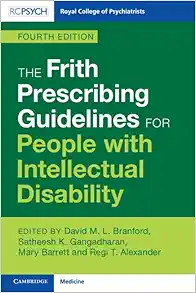Evidence-based Management of Diabetes (EPUB Book)
5 $
Format : EPUB
File Size : 21.7 MB
The book “Evidence-based Management of Diabetes” is a comprehensive and up-to-date guide for healthcare professionals involved in the management of diabetes. It covers various aspects of diabetes care, provides evidence-based treatment recommendations, highlights research gaps, and offers expert insights. The book is relevant, credible, comprehensive, and useful for clinicians. It includes practical treatment recommendations and serves as a valuable resource for healthcare providers. The book is highly recommended and has received a 5 out of 5-star rating. The publisher is TFM Publishing Ltd, and it was published on October 1, 2012. The book is written in English and has the ISBN numbers 9781903378786 and 9781908986719.
by Jiten Vora (Author)
Understanding Diabetes and Its Management
Diabetes Mellitus is a chronic metabolic disorder characterized by high blood sugar levels due to the body’s inability to produce or effectively use insulin. There are two main types of diabetes: Type 1 and Type 2. Type 1 diabetes is an autoimmune disease that destroys the insulin-producing cells in the pancreas, while Type 2 diabetes is caused by insulin resistance, where the body becomes less responsive to insulin [1]. Other less common types of diabetes include gestational diabetes, which occurs during pregnancy, and monogenic diabetes, which is caused by mutations in a single gene [2]. Understanding the different types of diabetes is essential for effective management of the disease.
Several factors can contribute to the development of diabetes, including genetics, lifestyle, and environmental factors. Obesity is a significant risk factor for Type 2 diabetes, and the prevalence of diabetes has been increasing globally due to the obesity epidemic [3]. Therefore, lifestyle modifications, such as weight loss, healthy eating, and regular physical activity, are crucial in the prevention and management of diabetes [4]. Diagnosis of diabetes is typically based on blood sugar levels, either through a fasting plasma glucose test or an oral glucose tolerance test [5]. Recognizing the causes and risk factors for diabetes is crucial in preventing and managing the disease.
Effective management of diabetes requires a comprehensive approach that includes medication, lifestyle modifications, and regular monitoring of blood sugar levels. Evidence-based resources, such as diabetes self-management education and support (DSMES), have been shown to improve diabetes knowledge, self-care behaviors, and glycemic control [6]. Additionally, regular screening for diabetes complications and comorbid conditions is essential in managing the disease [7]. Cardiovascular disease is a significant complication of diabetes, and controlling cardiovascular risk factors can significantly reduce the risk of complications [8]. Therefore, understanding the evidence-based approaches to diabetes management is crucial in ensuring optimal outcomes for individuals with diabetes [2].
Evidencebased Approaches to Diabetes Management
The management of diabetes requires a comprehensive approach that is grounded in evidence-based practice. Evidence-based practice involves the integration of the best available research evidence with clinical expertise and patient values and preferences [9]. “Evidence-based Management of Diabetes” is an excellent resource that provides a comprehensive review of the literature on all topics related to Diabetes Mellitus [2]. By utilizing evidence-based approaches to diabetes management, healthcare providers can ensure that their patients receive the most effective and appropriate care [10].
Lifestyle changes are a key component of diabetes management. Evidence-based lifestyle habits, such as healthy eating habits and regular physical activity, can significantly improve diabetes control and reduce the risk of complications [11]. The National Standards for Diabetes Self-Management Education and Support provide guidance on evidence-based, quality practice for diabetes management [12]. By empowering individuals with evidence-based advice, healthcare providers can help their patients take control of their health and manage their diabetes more effectively [13].
Pharmacological approaches to diabetes management are also an important aspect of evidence-based practice. There are multiple pharmacological options available for the management of diabetes, including insulin therapy and oral medications [14]. The central precept in the management of type 1 diabetes is insulin treatment, and there are multiple approaches to insulin therapy [15]. Early initiation of pharmacologic therapy is associated with improved glycemic control and reduced long-term complications in type 2 diabetes [16]. By staying up-to-date with the latest evidence-based treatment options, healthcare providers can ensure that their patients receive the most effective and appropriate pharmacologic therapy [17].
Diet and Nutrition in Diabetes Management
Diet plays a crucial role in the management of diabetes. Evidence suggests that high dietary fiber intake is an important aspect of diabetes management as it helps improve glycemic control and reduce the risk of cardiovascular disease [18]. Nutritional counseling is essential for patients with diabetes to help them understand the importance of a healthy diet and make informed dietary choices. Evidence-based dietary approaches, such as reducing overall carbohydrate intake, have been shown to improve glycemic control [19]. Therefore, healthcare professionals should provide individualized nutrition therapy to patients with diabetes to help them manage their condition effectively [19].
Weight reduction is another important aspect of diabetes management. Evidence suggests that weight loss can improve glycemic control and reduce the risk of weight-related complications [20]. Low-carbohydrate diets have also been found to be effective in reducing high blood glucose levels in patients with diabetes [21]. However, it is important to note that dietary approaches should be individualized based on the patient’s medical history, lifestyle, and personal preferences [22]. Healthcare professionals should work with patients to develop a personalized nutrition plan that addresses their specific needs and goals.
Nutritional counseling is an essential component of diabetes management. Healthcare professionals should provide patients with evidence-based dietary pattern guidance to promote cardiometabolic health, including adjusting energy intake and expenditure [23]. Online platforms such as Virta Health provide a ketogenic diet intervention, education, coaching, and physician management of medications for patients with diabetes [24]. Primary care offices should also offer diabetes education and nutritional counseling to uninsured patients, and free patient education materials are available [25]. By providing effective evidence-based advice, healthcare professionals can empower individuals to manage their diabetes effectively and improve their overall health and well-being [13].
Physical Activity in Diabetes Management
Physical activity plays a crucial role in the management of diabetes, and its benefits are well-documented. Regular exercise has been associated with the prevention of weight gain, reduction in blood pressure, and improvement in insulin sensitivity, all of which are essential in managing diabetes [26]. Aerobic exercise, in particular, has been shown to be effective in managing and preventing type 2 diabetes [27]. Exercise also helps improve blood glucose control, reduces cardiovascular risk factors, contributes to weight loss, and improves overall health [28]. Therefore, incorporating physical activity into diabetes management plans is crucial for individuals with diabetes to maintain good health and prevent complications.
Evidence-based guidelines for exercise in diabetes management exist and provide a framework for healthcare professionals to develop individualized exercise plans for their patients. The American Diabetes Association (ADA) recommends that adults with diabetes engage in at least 150 minutes of moderate-intensity aerobic exercise per week, spread over at least 3 days per week, with no more than 2 consecutive days without exercise [29]. The American College of Sports Medicine (ACSM) also provides evidence-based recommendations regarding physical activity and exercise in diabetes management [30][28]. These guidelines emphasize the importance of individualized exercise plans that take into account an individual’s fitness level, preferences, and medical conditions.
Incorporating physical activity into diabetes management plans can be challenging, but it is essential for individuals with diabetes to achieve optimal health outcomes. Strategies for incorporating physical activity into diabetes management plans include setting realistic goals, monitoring progress, and utilizing resources such as diabetes self-management education (DSME) programs [31][26][10]. Additionally, healthcare professionals can work with their patients to identify barriers to physical activity and develop strategies to overcome them [32]. By adopting and maintaining physical activity, individuals with diabetes can improve blood glucose management, overall health, and quality of life [33].
Monitoring and Prevention of Diabetes Complications
Regular monitoring and screening are crucial components of managing diabetes and preventing complications. Blood glucose monitoring (BGM) plays a significant role in the diagnosis and management of individuals with impaired glucose metabolism or diabetes [34]. Evidence-based prescriptions of structured BGM profiles provide essential information for productive clinician and patient collaboration in diabetes management [35]. Moreover, accurate and regular monitoring of blood glucose levels can help prevent complications such as diabetic retinopathy, neuropathy, and nephropathy [36]. Therefore, it is essential to regularly monitor and screen individuals with diabetes to prevent complications and improve overall health outcomes [16].
Evidence-based approaches to preventing diabetes complications include collaborative care and self-management education. Collaborative care models, which involve a team of healthcare professionals working together to manage diabetes, have been shown to improve glycemic control and reduce the risk of complications [37]. Additionally, self-management education programs that provide individuals with the knowledge and skills to manage their diabetes have been found to be effective in reducing HbA1c levels and improving overall health outcomes [31]. Therefore, incorporating collaborative care and self-management education into diabetes management can help prevent complications and improve health outcomes [38].
Prevention of diabetes complications is a key focus of diabetes management. Evidence-based guidelines for diabetes care provide healthcare professionals with guidance on how to prevent and manage diabetes complications [20]. These guidelines cover various aspects of diabetes management, including glycemic control, psychosocial assessment and care, individualized nutrition therapy, and quality of care [4][39][40][19]. By following evidence-based guidelines, healthcare professionals can provide comprehensive care to individuals with diabetes and prevent complications such as microvascular and macrovascular diseases [16].
Product Details
- Publisher: TFM Publishing Ltd; October 1, 2012
- Language: English
- ISBN: 9781903378786
- ISBN: 9781908986719
Related Products
Medical Book
Medical Book
Medical Book








































































































